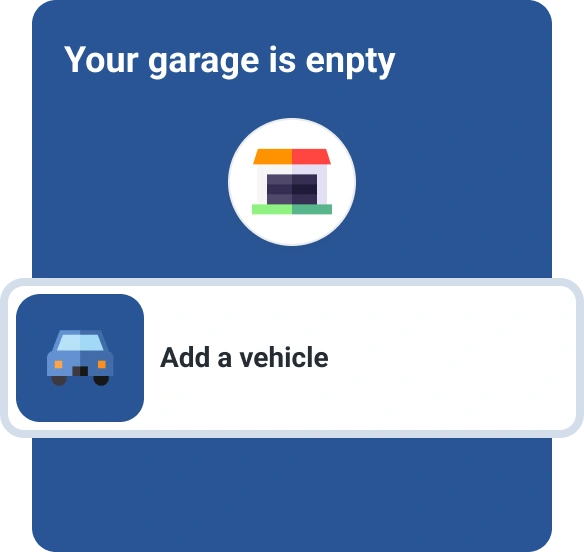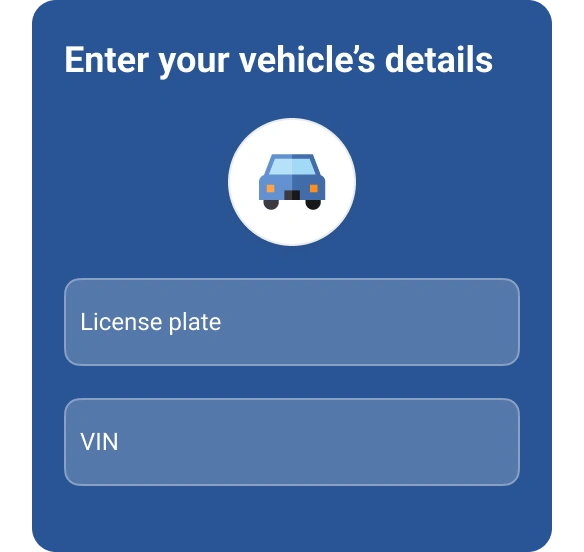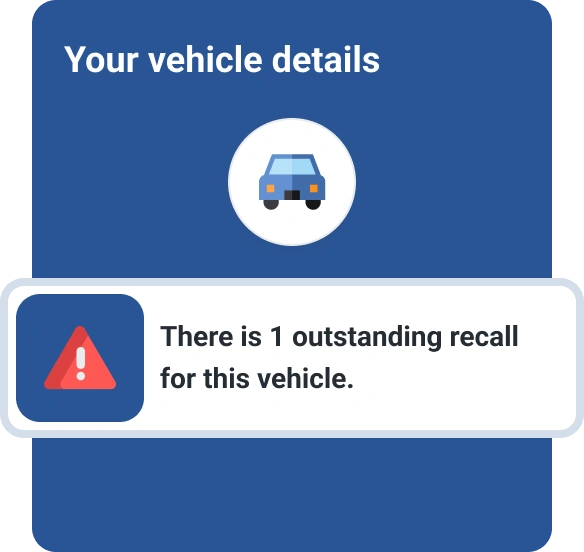Can You Choose the Repair Shop for a Car Insurance Claim?
Quick Answer
You can generally choose where to get your car repaired when you file a car insurance claim. An auto insurance company can’t force you to pick one car repair shop over another, even one that the company recommends. But your insurer might put some restrictions on your car repairs.

A crash that damages your car might put a real dent in your bank account. But if you have auto insurance, filing a claim may help ease the financial burden.
One big dilemma you'll face after filing an insurance claim is where to get your car repaired. Fortunately, you have the right to choose the auto repair shop that fixes your car—although your insurance company might put some restrictions on the repairs.
What Are Your Repair Rights When Filing a Claim?
Your auto insurance company can't force you to choose one repair shop over another to fix damage covered by your policy. However, your insurer can require you to obtain more than one repair estimate if it thinks the estimate you got is too high.
The insurance company will compare all of your repair estimates with the estimate developed by the insurance adjuster assigned to investigate your claim. However, you don't have to accept the adjuster's estimate unless you're satisfied that the estimate would actually cover the repair costs. In fact, you may be able to negotiate a higher estimate.
Just be prepared for your insurer to pick the lowest estimate to avoid paying a "grossly inflated" repair bill, the Insurance Information Institute advises.
How to Start the Auto Repair Process
Here are four steps to take when you're going through the auto repair process with your insurance company.
1. Check Your Coverage
Nearly every state requires drivers to carry two types of auto liability insurance: bodily injury liability and property damage liability. These types of coverage help defer the cost of bills for injuries to other people or damage to other people's property that you cause in an auto accident. It doesn't apply to injuries to people in your car or damage to your own property, including your car.
So, if another driver caused an accident that damaged your car, their insurance typically covers your repair bills. That's true whether you live in an at-fault or no-fault state. The same rule generally doesn't apply to medical bills, though.
The scenario changes if you carry collision coverage, which often must be purchased if you have a loan or lease on your car. No state requires collision coverage. This coverage helps pay for car repairs when you hit another car or an object, no matter who caused the accident.
You might also be able to rely on uninsured motorist coverage for your car repair bills. Some states require this coverage. In the case of damage to your car, your policy's uninsured motorist coverage kicks in if a driver with little to no insurance crashes into your car.
If you're unsure about whether your policy will cover repair bills for your car, reach out to your insurance company before agreeing to repairs.
2. File a Claim
If you've figured out that your policy will easily cover the cost of repairing damage to your car, then it's time to file a claim with your insurance company. Generally, you can submit a claim by calling your insurer or using your insurer's website or mobile app.
To help make the claim-filing process go smoothly, share details, photos and videos of the accident and damage if you have them.
Keep in mind that it might not make sense to file a claim if the repair bill is below your deductible or even a few hundred dollars above it.
3. Work With Your Insurer's Claims Adjuster
Once you've filed an insurance claim, your insurance company will assign a claims adjuster who's paid by the insurer to review your case and estimate the amount of the claim payout. Among other things, the adjuster likely will examine the damage, go over police reports and chat with witnesses.
When you're dealing with a claims adjuster, you should:
- Be present when they're inspecting the damage to your car.
- Obtain the adjuster's name, phone number and email address.
- Find out when the insurance company plans to give you a settlement offer.
- Keep notes about conversations you have with the adjuster.
- Reach out to your insurance company if you're unable to contact the adjuster.
- Request a different adjuster if you aren't satisfied with the current one.
- Consider asking the insurer to revise the adjuster's estimate if you're unhappy with it.
4. Choose a Repair Shop
Although your insurance company might suggest using a repair shop that's in its "direct repair program," you have the right to pick any repair shop you'd like and get your own repair estimate. However, it's worth noting that your insurer might offer a lifetime guarantee on work done by one of its recommended shops.
Remember that some auto insurance companies let policyholders choose between generic (aftermarket) and OEM (original equipment manufacturer) parts for repairs. In fact, some policies dictate that only OEM parts can be used for auto repairs.
If you don't already use a trusted repair shop, here are some tips for selecting where to get your car fixed:
- Read online reviews.
- Seek recommendations from friends and relatives.
- Compare repair costs quoted by several shops.
- Pick a shop whose automotive professionals are certified by the National Institute for Automotive Service Excellence.
- Make sure all the specifics about the repair work, including the repair estimate, are in writing.
- Inquire about warranties that'll guarantee the quality of the shop's work.
- Ask your insurer whether it'll cover the cost of a rental car while your vehicle is being repaired.
Will Your Insurance Be Affected by a Claim?
You may be wondering whether your insurance might go up after filing a claim, even if the accident wasn't your fault. Well, it depends on several factors, such as how your insurer calculates premiums.
Generally, if you file a claim with your insurance company for an accident that's your fault and that exceeds a specific dollar amount, an insurance company will increase your premium by a certain percentage. This percentage varies from one insurer to another, but it might be close to 50% for an at-fault accident. A premium hike stemming from an at-fault accident typically stays in effect for three years after the claim.
Even an accident that's not your fault might cause your premium to go up. However, the financial pain for a no-fault accident might not be as bad as it would be with an at-fault accident. In this case, the increase might be less than 15%.
Some insurers offer a feature known as accident forgiveness, meaning your premium might not rise even if you caused the accident.
Aside from who was at fault, factors that typically affect your insurance premium following an accident claim include:
- The severity of the damage to your car
- The dollar amount of the claim
- Your driving record
- Your claim-filing history
When to File an Insurance Claim—and When Not To
A key consideration when deciding when or when not to file an insurance claim after a car accident is whether the dollar amount of the damage exceeds your deductible. Here are two scenarios that illustrate this point:
- When filing a claim is a good idea: If your deductible is $500 and the damage will cost $5,000 to fix, then it generally would make sense to file a claim. In this case, your insurer would subtract $500 from your claim, meaning the company would be on the hook for $4,500 in repair expenses.
- When filing a claim is a bad idea: If your deductible is $500 and the damage will cost $600 to fix, it probably wouldn't be wise to file a claim. Why? Because your insurer will subtract the deductible from the amount of the claim payout, leaving you with just $100 in your pocket. That may seem better than nothing, but you may end up paying the price in the form of a higher insurance premium.
Other factors that may tip the balance toward filing a claim include:
- Was anyone injured in the accident?
- Was someone else's car or property damaged?
- Is the at-fault driver uninsured or underinsured?
- Is someone threatening to sue you over accident injuries or damage?
Other factors that might persuade you not to file a claim include:
- Was the accident minor, causing damage that you don't want or need to fix?
- Would your premium go up dramatically after the claim is paid?
- Do you have a history of filing auto insurance claims?
- Can a reliable friend or relative who specializes in auto repair fix the damage to your car at little to no cost?
The Bottom Line
A car accident can rattle anyone. But you may be able to breathe a sigh of relief knowing that you can choose any repair shop to fix your car after filing an accident claim with your insurance company. While your insurer might recommend one of the repair shops in its network, you don't have to follow that recommendation. Once your claim has been submitted, be sure to stay on top of the details, particularly the repair estimate. To shop for the best rate for coverage to protect yourself and your car, try using Experian's free auto insurance comparison tool.
Don’t overpay for auto insurance
If you’re looking for ways to cut back on monthly costs, it could be a good idea to see if you can save on your auto insurance.
Find savingsAbout the author
John Egan is a freelance writer, editor and content marketing strategist in Austin, Texas. His work has been published by outlets such as CreditCards.com, Bankrate, Credit Karma, LendingTree, PolicyGenius, HuffPost, National Real Estate Investor and Urban Land.
Read more from John

